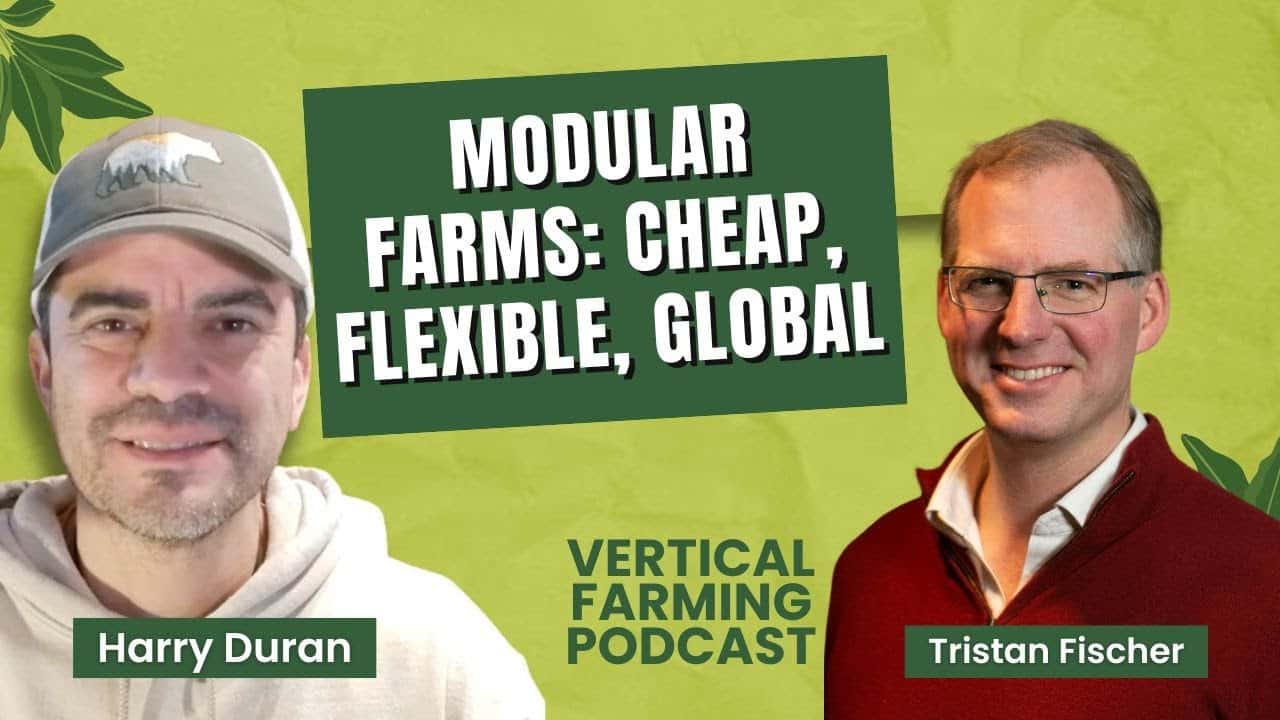Key Takeaways
- Tristan Fischer outlines Fisher Farms’ transition from a 3,200 m² facility to a 25,000 m² operation.
- The company has adopted a modular, factory-built model for future deployments.
- Cost reduction remains the core strategic priority for achieving long-term competitiveness.
- Fisher Farms emphasizes collaborative problem-solving and idea-driven culture.
- New opportunities include nursery production, saplings, and distributed microgreen farming.
Tristan Fischer on Scaling From Farm 1 to Farm 2
In a recent appearance on the Vertical Farming Podcast podcast, Tristan Fischer, CEO of Fischer Farms, detailed the company’s progression from its first 3,200 m² site to its significantly larger 25,000 m² facility. The commissioning of Farm 2 came with a complex set of interlocking technical challenges.
“If you have a thousand things which need to get right, I think we probably planned for about 900 of them and got them right… but there were a few items which actually ended up being very, very difficult. Sometimes you had a problem hiding behind another problem,” Fischer explained.
Engineering and Operational Adjustments
Hardware integration, control systems, conveyor alignment, and environmental standardization were among the areas requiring extended fine-tuning. Despite these challenges, Fischer noted that approximately 50 issues were resolved quickly once the system began running at scale.
Tristan Fischer On Modular, Factory-Built Farms as the Future Model
Fisher Farms has shifted to a modular approach built around standardized container-based grow units. These modules can be manufactured in controlled factory conditions and deployed globally with minimal customization.
According to Tristan Fischer, this approach supports flexible site development, enabling partners to scale operations incrementally while maintaining consistency across regions.
Applications Beyond Leafy Greens
The modular model also opens pathways for:
- Microgreen production closer to customers
- Nursery production for greenhouse operators
- Propagation of saplings and young plants
Cost Reduction as Fisher Farms’ Core Strategy
Fischer emphasized that lowering production costs remains central to Fisher Farms’ long-term plan. “Our view is that if we focus on really driving down cost, cost, cost, cost, then we don’t have to worry about becoming a premium brand—but it gets us in the direction where we want to be, which is: how do you actually feed the world without trashing the planet at the same time?” he said.
A Culture Built on Layered Ideas and Collaboration
Beyond technology and engineering, Tristan Fischer highlighted the importance of team culture in solving complex problems.
“What we want is my terrible idea… and your crazy, insane idea… and somebody else’s idea—and they’re all genuinely bad ideas independently, but by putting those ideas together, layering those ideas on top, we come up with a beautiful, brilliant insight which none of us independently had thought about.”
Encouraging Diverse Inputs
Fischer described this approach as a structured way to unlock insights that no individual could arrive at alone—a critical capability when navigating large-scale operational challenges.


